When it comes to cleaning veggies, water is effective at removing most bacteria. But if you want an alternative way to clean your produce, try a homemade vegetable wash of vinegar, lemon juice, and water!
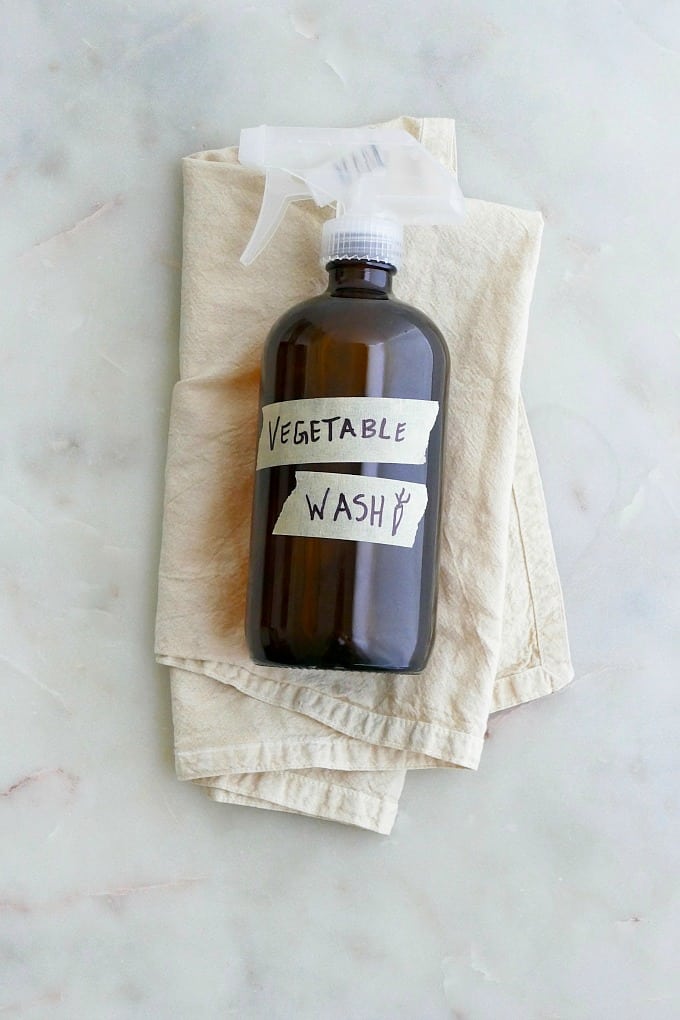
Have you ever wondered how exactly you should wash produce? Is rinsing veggies with water enough to clean off residue or bacteria? Do you need a fancy, store-bought cleaner? Or should you actually leave some dirt on your veggies to, ya know, boost gut health?
Well, my veggie-loving friends, I come bearing answers.
Does rinsing vegetables really help?
Rinsing vegetables with water can remove most of the bacteria that may exist on the surface of veggies.
In fact, several studies have found that water is highly effective at removing bacteria and residue (1, 2).
Examples of bacteria that may infect vegetables include Salmonella, E. coli, and Listeria. These bacteria can cause foodborne illnesses in humans that are highly unpleasant and can even be fatal in some instances (3).
So, yes, rinsing vegetables with water certainly helps reduce your risk of ingesting harmful bacteria. It’s a very simple, but incredibly important, process that can help you stay safe.
This is especially true if you are consuming raw fruits or vegetables, since cooking and heating foods also helps to kill bacteria.
Is produce wash necessary?
Most store-bought produce washes are not necessary, and have not been shown to be any more effective at removing bacteria than rinsing vegetables with water (4).
What’s more, some commercial produce washes may leave a chemical residue that probably shouldn’t be consumed.
However, homemade vegetable wash made with water, vinegar, and lemon juice is a safe and effective option for cleaning vegetables.
Studies suggest that acetic acid, found in vinegar, and citric acid, found in lemon juice, may be particularly effective at killing some types of bacteria, such as E. coli, on leafy greens (5, 6, 7).
In addition, one study found that a vinegar and water solution was significantly more effective than water alone on killing Salmonella on apples (8).
But other studies note that vinegar-based washes do not work any better than water against different bacteria, like Listeria (2).
Overall, vinegar-based veggie washes may remove more bacteria than water alone, at least on some types of produce, but research is mixed.
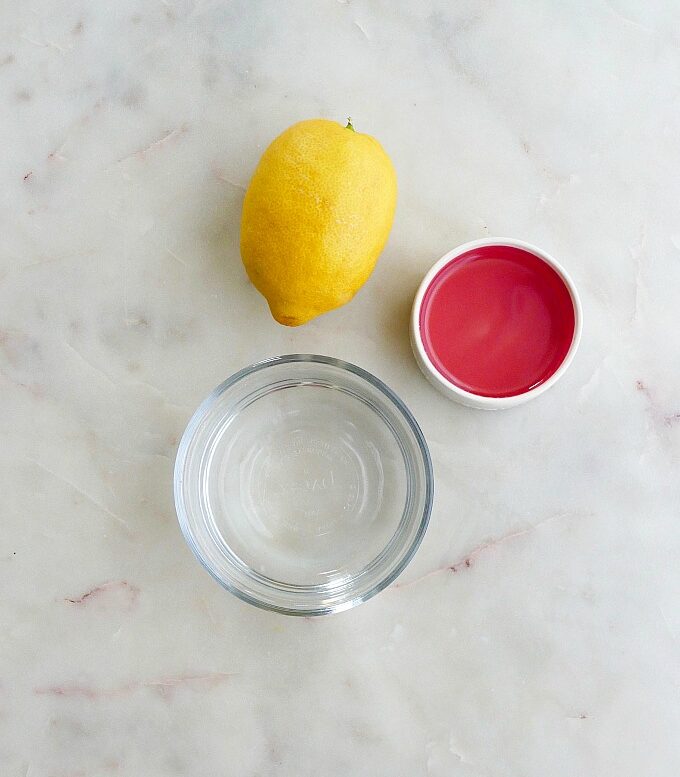
How should you wash vegetables?
At the very least, you should run all vegetables under cold water for 30-60 seconds to remove dirt and bacteria.
Here are some other tips for washing vegetables (9):
- Use your fingers to massage fruits or vegetables with soft skins, like tomatoes, while you are running them under water. For produce with hard skins, like potatoes or carrots, use a veggie brush.
- Dry washed produce with a clean cloth or paper towel.
- Even if you don’t plan to eat the skin of a fruit or vegetable, you should still wash it. Bacteria can get into small crevices and/or get transferred to the flesh when you slice it.
- Wipe mushrooms with a wet paper towel to remove dirt.
- Separate leafy greens before washing. If they are very dirty (i.e. beet greens), you can put them in a bowl with cold water and move them around with your hands to dislodge any dirt. Rinse with cold water afterwards, and dry with a paper towel.
- Broccoli and cauliflower can be immersed into cold water for one or two minutes and then rinsed.
- Avoid using detergent or soap to wash produce.
- Keep your sink and hands clean.
As noted above, homemade vegetable wash spray (made from vinegar and lemon) is also effective at removing bacteria, and may be especially good to use on leafy greens (after they have been separated and rinsed).
To use a homemade wash, simply spray your produce (with enough to cover the surface), let it rest for a minute or two, then rinse with cold water.
A vinegar spray shouldn’t drastically affect the taste of your fruits or vegetables, but it may slightly alter it.
For my favorite DIY fruit and veggie wash, check out the recipe below! If you’re looking for a good glass spray bottle, I recommend these ones.
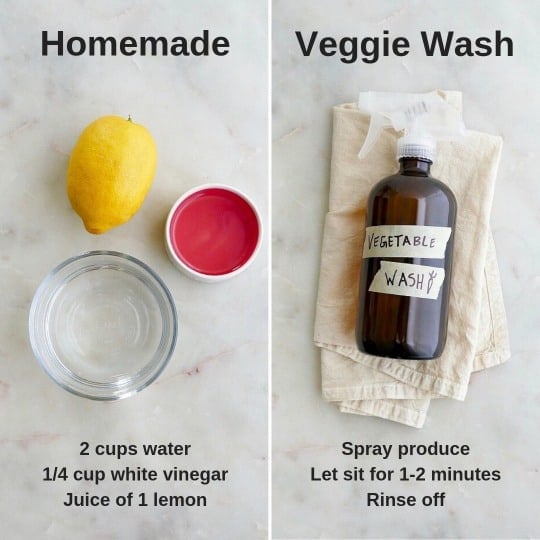
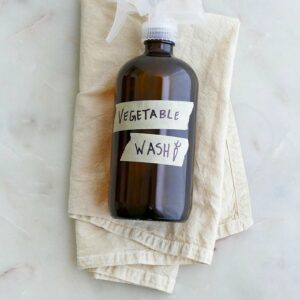
Homemade Vegetable Wash
Equipment
- Glass spray bottle
Ingredients
- 2 cups water
- 1 lemon - juiced
- ¼ cup white vinegar
Instructions
- Mix together the water, lemon juice, and white vinegar in a small measuring cup or pitcher.
- Carefully pour the mixture into a 16 or 20 ounce glass spray bottle. You may want to use a funnel, but you can also pour it via a measuring cup.
- When you want to use the spray on produce, shake it up and apply a few sprays (enough to cover the skin) to your fruit or veggies. Let them sit for minute or two, and then wash with cold water.
Notes
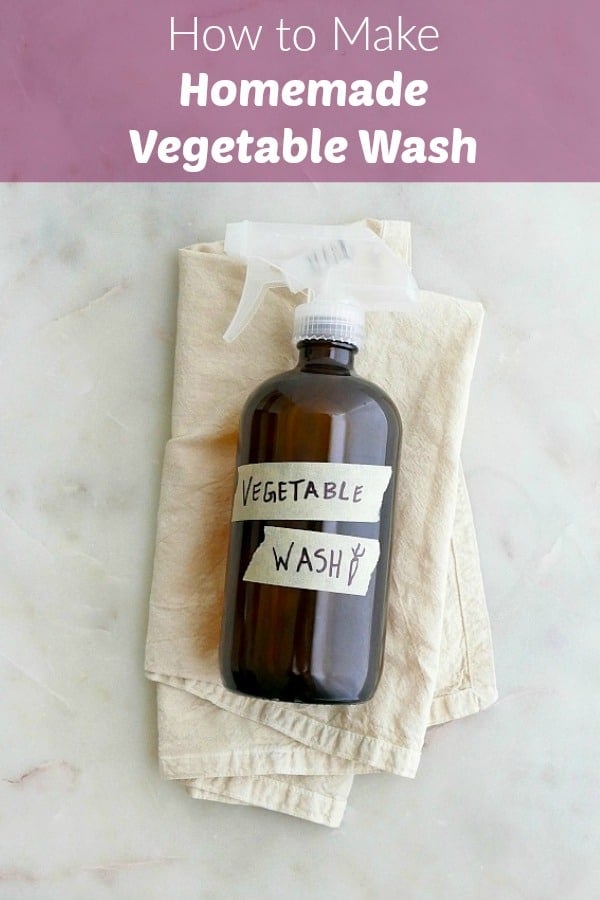
After you clean your veggies, be sure to browse the recipe library for some inspiration on how to use them in your cooking!
Enjoy,
Lizzie


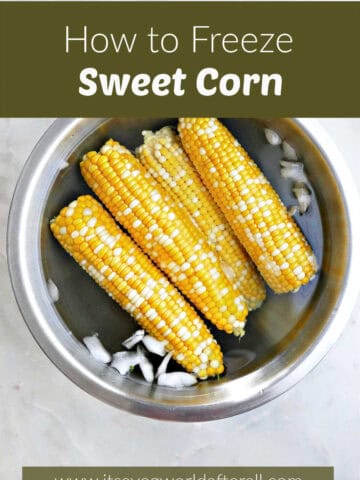
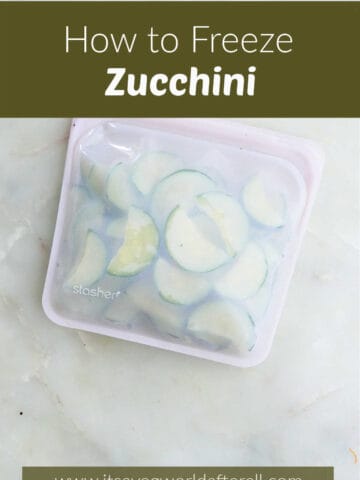
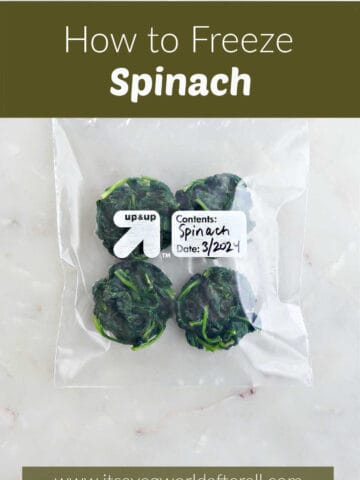
Gr21212
Does this vegetable wash expire? Or does the vinegar act as a preservative?
Samuel Moreno
Yes, the wash recipe above can and will become rancid after a certain period of time, depending on many different factors. First of all, you can use either lemon or lime juice, and use this recipe to clean both fruit and vegetables. Lime juice will work just as well as lemon juice, and this is the best recipe to also clean fruits with ( berries which are contaminated with very small amounts of mold, bacteria, and viruses that are mostly in the small crevices of the skin).
One contributing factor to this recipe that can cause it to become spoiled or rancid is that white vinegar is just two ingredients: acetic acid that is already highly diluted with water. White vinegar itself has a pretty long shelf life, but once you dilute it with even more water, the pH will not be low enough to kill certain viruses and bacteria nearly as well.
Pure USP citric acid (the organic compound that is found in both lemon and lime juice) will not spoil on its own. However, if you are using citric acid in the form of lemon or lime juice, you are adding a risk of contaminating the already heavily diluted acetic acid from the skin and pulp of the lemon or lime itself.
If you are not using 100% sterile glassware to measure and store the fruit/vegetable wash and do not have 100% sterile hands, this will add to the chances of the wash becoming rancid.
If you don’t plan on refrigerating the wash, and expect making a large amount of the wash while using it for more than a month or so, you might be better off buying a powdered form of USP citric acid and acetic acid, and diluting this with distilled water instead.
If you plan on refrigerating the glass bottle and using it within a month, you SHOULD be fine. There is always a risk of cross contamination from your hands, the lemons/limes themselves, and the glassware that you are using.
As long as you don’t have really bad hand hygiene, use dirty lemons/limes, and maybe use a little less water than the recipe suggests, leaving the bottle on the counter should last a month or two without much (if any) risk of contamination.
Make sure to use purified or distilled water in the recipe, and heavily rinse the fruits/vegetables with tap water afterwards (the chlorine in your tap water will help even further, and drying the fruits/vegetables afterwards with clean paper towel will get most if not all of the chlorine off of the now clean produce.
Samuel Moreno
If you can’t tell, I am a chemist. I tend to make things sound much more complicated than it really is. Lizzie is great at using her words and knowledge with food to make everything really simple. I don’t mean to scare anyone off, Her recipe works great, and the chances of the wash becoming spoiled is very low unless you are using very dirty and contaminated material.
Lizzie Streit, MS, RDN
Hi Samuel, thank you for the very thorough comments. I have been wanting to update this post to make sure it is in line with food safety standards. You have given me a lot of interesting things to research. I appreciate your engagement as a reader!
KeithJames
This was very helpful. I was getting tired of keeping store bought veggie wash on my buy list and had a suspicion that I could do with out it. Thank you for a lot of good info.
Lizzie Streit, MS, RDN
I’m glad you found the post helpful! Thanks for letting me know.